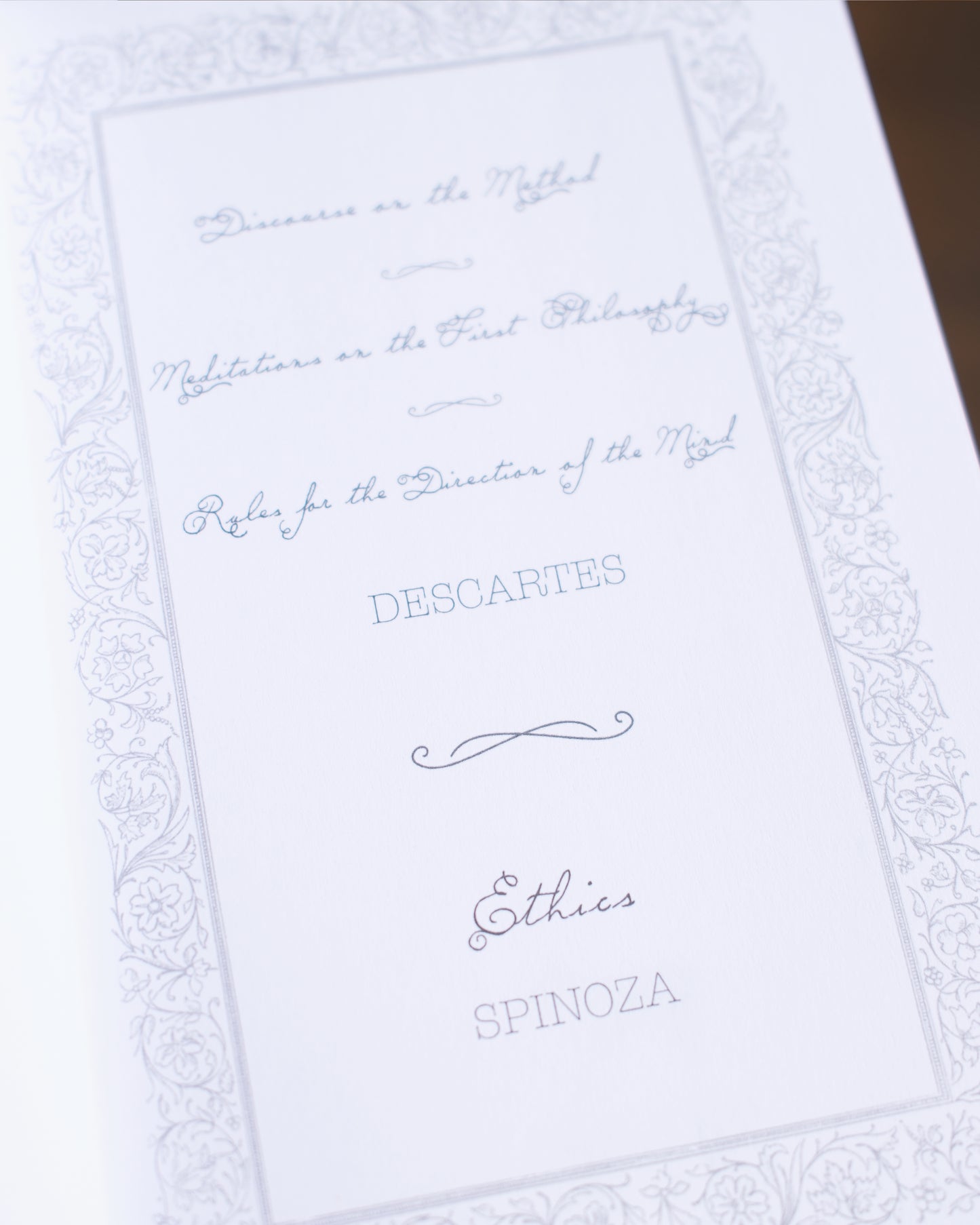Covers By Andrew
Collected Works of Descartes & Spinoza
Collected Works of Descartes & Spinoza
Couldn't load pickup availability
Share
Discourse on the Method; Meditations on the First Philosophy; Rules for the Direction of the Mind
René Descartes is often considered the father of modern philosophy, known for his emphasis on doubt and the use of reason as the foundation for knowledge. His famous dictum, Cogito, ergo sum ("I think, therefore I am"), establishes the self as the first certainty in a systematic process of doubt. Descartes' philosophy revolves around the separation of mind and body (dualism) and the idea that clear and distinct ideas, derived through reason, form the basis of true knowledge. He sought to establish a method for acquiring certain knowledge through rational inquiry, which became a cornerstone of modern philosophical and scientific thought.
Ethics
Baruch Spinoza's Ethics presents a radically different view, grounded in a monistic philosophy where God and Nature are seen as one substance. Spinoza rejects the dualism of Descartes, arguing instead that everything that exists is a part of this single substance. In Ethics, he outlines a deterministic universe where everything follows from the nature of God or Nature, and human freedom lies in understanding this necessity and aligning oneself with the rational order of the universe. Spinoza’s work emphasizes the importance of rationality, self-knowledge, and the pursuit of intellectual love of God (amor Dei intellectualis) as the path to true happiness and virtue. His Ethics significantly influenced later Enlightenment thinkers and remains a central text in the history of philosophy.


















